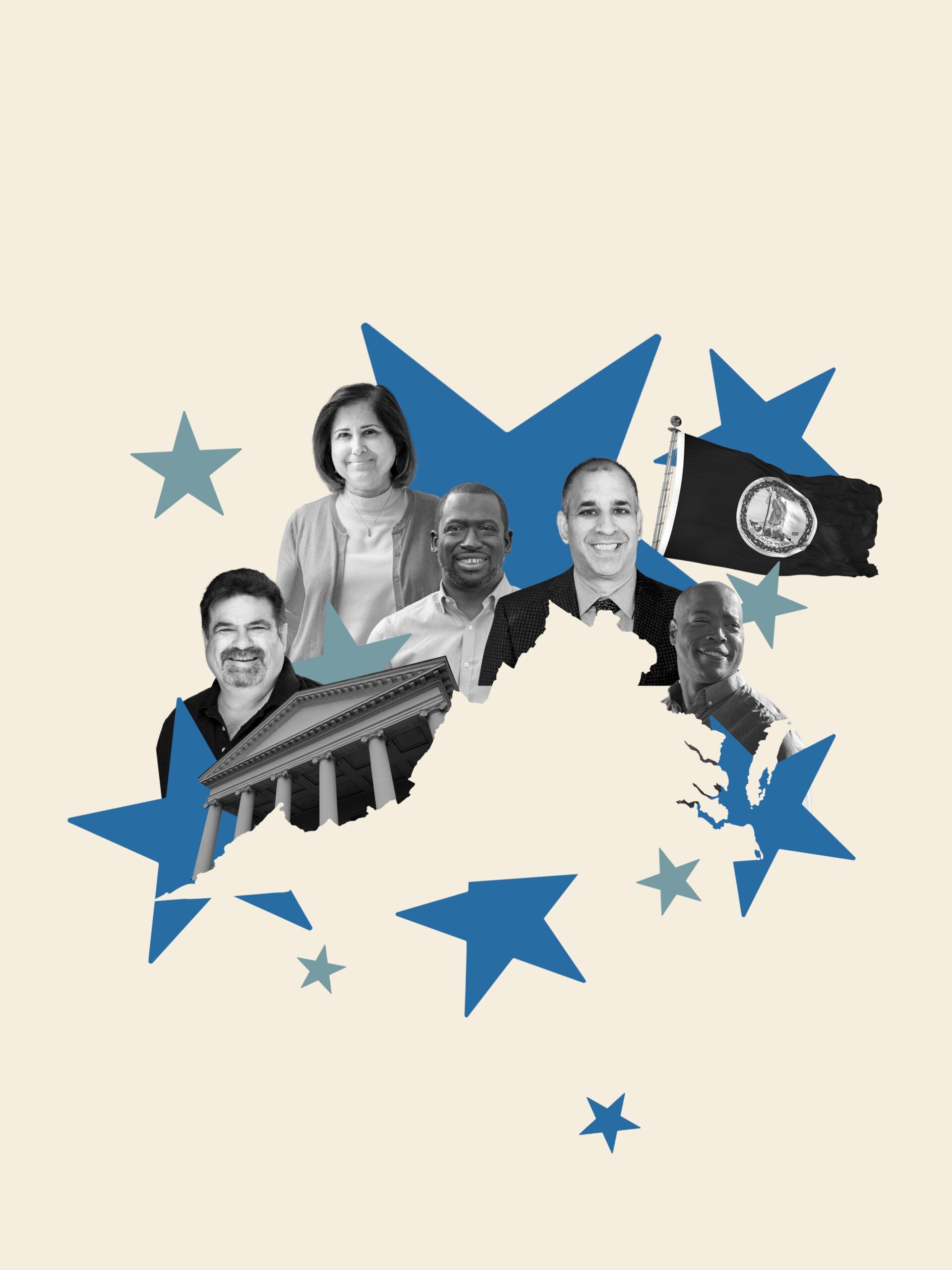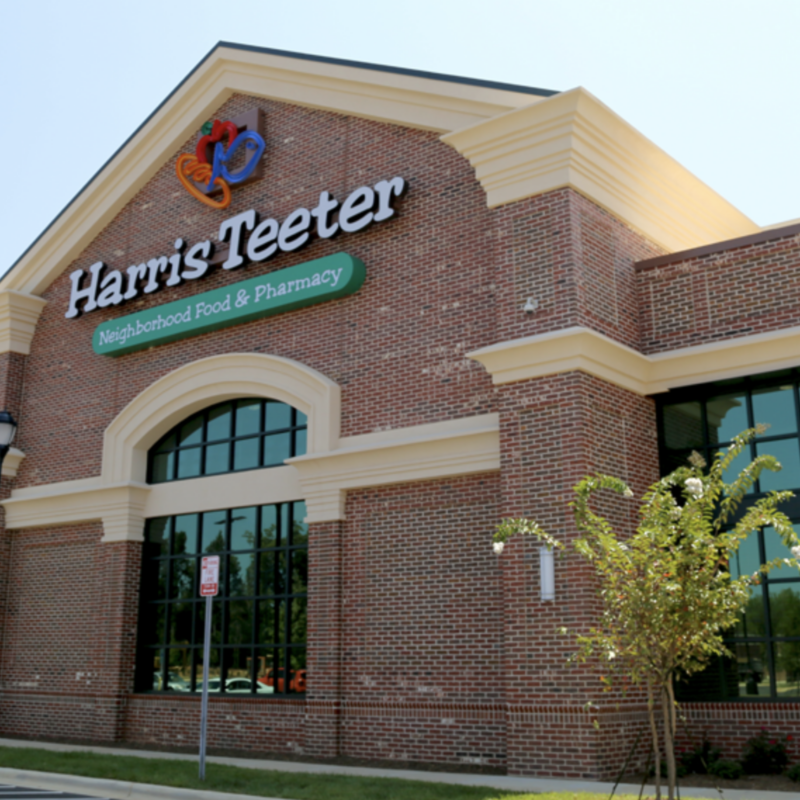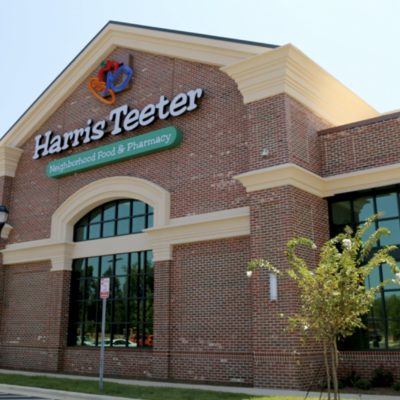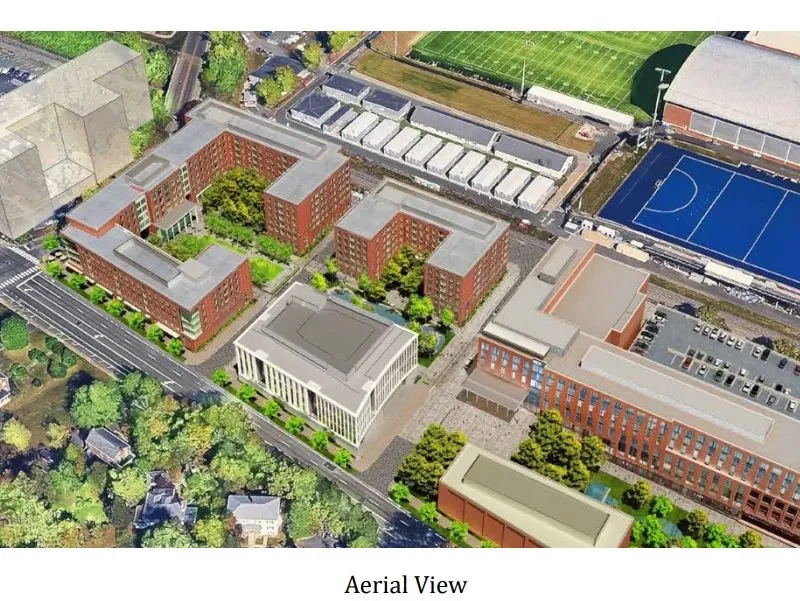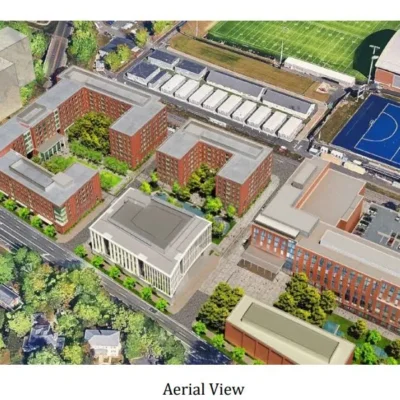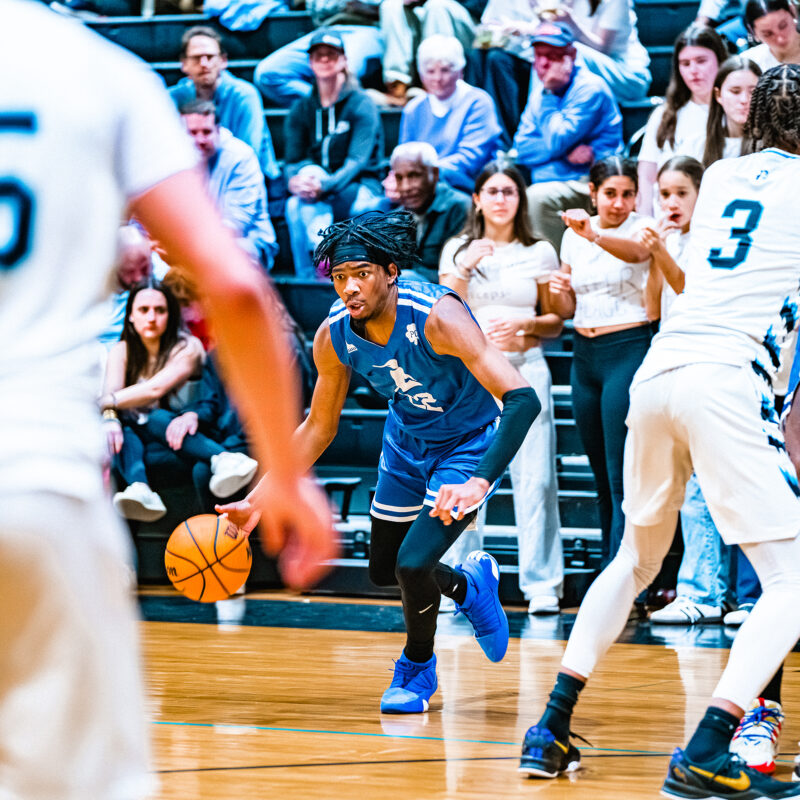It’s primary season in Virginia, and ahead of the June 17 election, C-VILLE reached out to candidates in the lieutenant governor, attorney general, Charlottesville City Council, and Albemarle County Board of Supervisors Jack Jouett District races. The candidates’ responses appear in the order in which they were received. Interviews and comments have been edited for length and clarity.
Democratic primary for lieutenant governor



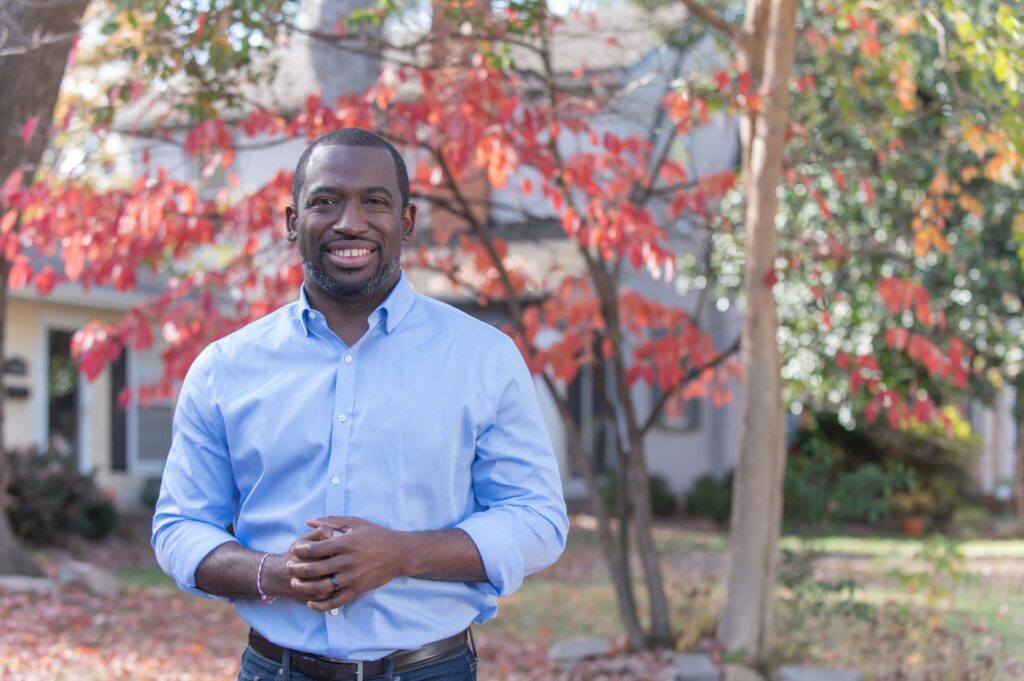

With the race for Virginia governor already set (Republican Lt. Gov. Winsome Earle-Sears vs. Democrat and former U.S. Rep. Abigail Spanberger), the highest statewide office on the primary ballot is the lieutenant governor’s race.
Both parties were slated to have contests this summer, but the Republican primary has been canceled after two challengers dropped out of the race. John Reid is now the de facto GOP lieutenant governor pick, and will face the winner of the crowded Democratic primary in November.
The six-candidate Democratic field includes political newcomers, local representatives, and current and former state legislators. Former Richmond Mayor Levar Stoney and state Sens. Ghazala Hashmi and Aaron Rouse are the current frontrunners in the race, outraising their opponents by a lot, according to the latest Virginia Public Access Project data. Attorney Alex Bastani; Babur Lateef, chair of the Prince William County School Board; and Victor Salgado, a prosecutor for the Department of Justice, are also vying for the nomination.
At press time, the Salgado campaign had not responded to C-VILLE’s request for comment. More information on Salgado and his priorities can be found at victorforvirginia.com.
C-VILLE: What are your top three priorities if elected?
Alex Bastani: The No. 1 issue is universal health care for all Virginians, which particularly impacts working-class minority communities who often can’t afford preventative care. … Secondly, we need to not only increase working-class pay with a $20 minimum wage but also repeal the Right to Work Act, which makes collective bargaining for working-class Virginians all but impossible. … Finally, we must grant student debt relief, which prevents working-class individuals from buying homes not only because of financial burden but poor credit ratings.
Babur Lateef: What I really care about—what most people care about—is affordability and affordable housing. … Young people are launching their lives and getting into their homes … later and later … Folks that are retiring are … getting priced out of staying in their own areas because of taxes and cost of living.
No. 2 is improved access to education. … Make sure higher ed is affordable, making sure K through 12 offers robust opportunities for our students everywhere across the commonwealth, not just in areas that have well-resourced districts, but every district.
Three, as a physician, access to quality health care, making sure we defend Medicaid.
Ghazala Hashmi: Fully funding public education and lowering the costs of post-secondary credentials and college degrees: All children in Virginia should be guaranteed quality public education. … Ensuring access to affordable and quality health care: Given federal threats, protecting Medicaid and the Affordable Care Act is a top priority. Fighting for housing as a basic human right. All Virginians deserve safe, habitable, and affordable housing.
Levar Stoney: I’m running for lieutenant governor because I want to give every Virginian a fair shot at success, and a fair shot, for me, begins with No. 1, be[ing] able to afford to live in Virginia.
No. 2 … access to the best public education system in the country. Right now, Virginia ranks dead last in math recovery from the pandemic. We rank 41st in reading recovery from the pandemic. We need to put our shoulder to the wheel and fund the true cost of public education in the state.
My third priority is ensuring that Virginia workers are protected. … Trump is cutting the federal workforce, which is also creating a ripple effect through our households.
Aaron Rouse: Families across Virginia are feeling squeezed, and right now they need leaders who are focused on helping them keep more of their hard-earned money. … As lieutenant governor, I’ll keep fighting to expand the child tax credit, eliminate the grocery tax, and make homeownership more accessible for first-time buyers.
I’ll lead the charge to defend Virginians from the chaos caused by Donald Trump and Elon Musk—standing strong to protect Social Security, Medicare, and Medicaid.
And I’ll never stop investing in our childrens’ futures. That means raising teacher pay, expanding mentorship and training programs for educators, and partnering with universities to build a diverse, talented workforce. I’ll also strengthen career and technical education.
What makes you the best choice for this lieutenant governor? How is this distinct from your opponents?
AB: Unlike my opponents, I have received no donations from corporations such as the casino or utilities industry. … My background is representing working families, not as an advocate for corporations or big government. I am the only one who has dedicated their life to representing middle and working class voters.
BL: I’m not a career politician. I’m not someone who has to hire a pollster to tell them what to say or think. I’m uniquely positioned as a physician to really talk to people every day and know what’s on the pulse of hard-working Virginians.
I have a record of executive experience that is successful, both at UVA [on the Board of Visitors] … and then at the [Prince William County] school division. We’ve given teachers a 61 percent raise, the largest in the nation in the same time period. … We’ve done collective bargaining, prevailing wages, and we have an energy sustainability initiative that’s award-winning by the U.S. Department of Agriculture.
I’m one of the only candidates opposed to a Tyson’s Corner Northern Virginia casino, which is highly unpopular. I’m also 100% opposed to these slot machines and video poker machines in your 7-Elevens and neighborhood restaurants.
GH: I am the most experienced legislator in the race and have an actual legislative track record that addresses the issues that Virginians most care about: education, health care, housing, and opportunity. As the Trump administration assails our freedoms and our values, I have pushed back hard.
Most of my opponents have never served in state government and have not worked on legislation. When Trump came after abortion rights, I wrote the bill protecting contraception and helped to draft language for our constitutional amendment protecting abortion. … I wrote the plan to protect Medicaid in Virginia. … I crafted the budget plan to increase funding for our schools, pay for our teachers, and expanded support for the children in our [schools].
LS: Although I’m one of the youngest people in the race, I’m also the most experienced person in the race. I’ve served in public office in Virginia for a little bit over 10 years. … In Richmond, I reduced poverty by 33 percent, we increased funding for public schools by nearly 60 percent, and what I’m most notably known for is what I did in the summer of 2020, when I brought down every single Confederate monument in the former capital of the Confederacy.
AR: I’m a fighter and I’ve proven it at every step of my life. … In 2018, I was elected to the Virginia Beach City Council. When Roe v. Wade was overturned, I stepped up again—defeating Glenn Youngkin’s hand-picked candidate and becoming the deciding vote to protect abortion rights in Virginia.
I’ve delivered real results for Virginians—like passing a new law this year to protect federal workers and contractors from the chaos created by Trump and Elon Musk. I championed the Save Local Pharmacies Act to take on big pharma and make sure families … can have access to life-saving medication. … As lieutenant governor, I’ll go toe to toe to defend Social Security and Medicare and fight to lower everyday costs for working families.
How do your priorities overlap with and diverge from your opponents’?
AB: It is clear [my opponents] have no priorities but answering to the donor class. My focus is effectuating deep structural change to our government, which has ignored the 80 percent of Virginians who do not earn six-figure salaries and have little to no savings as they live paycheck to paycheck.
BL: I’m proud to say that every topic I have brought up, my opponents have started talking about.
I’m the only candidate also currently fighting Donald Trump. The other candidates like to talk about how they’re going to stand up to Trump. Trump is investigating Prince William County for our bathroom policies and our model policies for trans students, which we have defended and not changed since Youngkin became governor.
I’ve been chairman of the school board seven years, [Richmond has] been running one to $2 billion surpluses, and they’re not returning those dollars back to fully fund our schools … If you’re not going to give us the money back to our localities, then … you should cut our taxes.
If you lose your job for performance reasons in Virginia, in the federal government, you can’t collect unemployment insurance. And if you cut Medicaid, you’re not going to have health insurance for those people who lose their jobs. And so we need to protect those folks … as a state [we] need to expand unemployment insurance.
GH: I believe that one of the most important jobs of the lieutenant governor is to hear from all Virginians because this position is the only official with a vote in the [state] Senate who represents the entire commonwealth. I’m committed to holding regular town halls and community forums throughout all of Virginia, especially in our rural communities where the needs for healthcare services, economic development, and access to education opportunities are so great.
LS: I was the first person to begin talking about housing. … I see that same problem throughout the commonwealth. … Not only have I been a champion for more housing and housing affordability, but also I’ve done it.
AR: Experience and results matter. I’m the only candidate in this primary with both an effective record at the state and local government levels, and I’ve flipped two red seats to blue in the process.
I’m proud to be one of the most effective senators in the General Assembly when it comes to getting bills passed, because I focus on delivering real results for real people.
What is the biggest issue Virginians are facing? How would you approach this issue?
AB: The biggest issue faced by Virginians is the extreme disparity of wealth in our nation. … I propose a bold progressive economic plan of a $20 an hour minimum wage so no person who works 40 hours a week can be classified as the working poor. We will implement universal health insurance at the state level, thereby not only extending and improving the quality of a life for a substantial majority of Virginians, but saving each taxpayer $4,000 a year, as documented by the medical periodical Lancet. We will effectuate a student debt relief program unburdening young Virginians. … We can pay for this by raising the state corporate tax, charging a user fee upon our state’s multi-billion dollar military industrial complex, and allowing marijuana to become a cash crop.
BL: Affordability is the biggest issue. … We want to get more folks into their homes sooner with a mix of grants, tax deductions for down payments, a commitment to pay people more. … We are losing population because people are leaving because it’s too expensive to live, and that’s a problem, and that continues to impact our teacher shortage issues and nursing shortage issues.
We need to fully fund our K through 12 schools. That would be a tie for top priorities, because we’re 42nd in the nation for state contribution to schools. … We can’t continue to put the burden of school funding on localities, and then localities that aren’t as well-resourced struggle to fund their schools.
GH: Virginia families are struggling in a shaky, unpredictable economy. … Prices are rising, job security is limited at best, making ends meet is harder and for those on a fixed income or saving for retirement, these are perilous times.
As lieutenant governor, I plan to continue my efforts for Virginia families facing economic insecurities by helping laid-off workers transition to new careers through intentional workforce development efforts; … strengthening housing and food programs; protecting Medicaid and Social Security from the attacks of Trump and Musk; and supporting the development of affordable housing.
LS: The biggest issue that many Virginians face today is the issue of affordability.
We need to build more housing in this state. And I think that is the issue that a lot of Virginians are facing right now: Can they afford to make it to the end of the month?
I want to be a champion for their success by ensuring that we build more housing, that we lower costs, we lower health care costs as well.
AR: The biggest issue I hear from Virginians across the commonwealth is affordable housing—and that’s especially true in places like Charlottesville, where families are being priced out of the communities they’ve helped build. … I’m proud to have delivered property tax relief for our seniors.
I’ve pushed to expand down payment assistance for first-time homebuyers, strengthen tenant protections, and hold bad landlords accountable. I’m also focused on increasing the supply of workforce housing by cutting red tape for affordable developments and partnering with local governments to support smart, community-based growth. I believe employers need to be part of the solution too, by offering housing benefits so workers can afford to live where they work.
What is your first course of action if elected?
AB: I will work with the Virginia AFL-CIO and community organizers to lobby the House of Delegates, the Senate, and the governor to repeal the so-called Right to Work law and raise the minimum wage to $20 an hour.
BL: We would hold the Youngkin administration accountable for all the mess they’ve made. … Every board and commission in the state is now controlled by the Youngkin administration. … We need to immediately look at all the changes that the Youngkin administration has done on these boards, to our institutions, and start correcting those.
GH: Protecting Virginia’s public schools is my first course of action. This will start with collaborating with our new governor so that we ensure strong and capable leadership at the Virginia Department of Education. … I will work with the members of our General Assembly to ensure that we see effective legislation introduced for the 2026 session, as well as a strong budget to support our efforts to improve educational opportunities.
LS: My first course of action is to go to the governor and ask her … for a portfolio of work, and that work will be to be a champion for building more homes in Virginia. … We have to incentivize localities to do the right thing … to reform their zoning laws so we can allow for more housing to be built.
AR: If elected lieutenant governor, my first course of action will be to partner closely with Gov. Spanberger to outline and advance a bold agenda focused on lowering costs for Virginians, protecting our communities from the chaos coming out of Washington, D.C., and undoing the damage caused by the Youngkin administration over the last four years.
If you win the primary, what makes you a strong candidate heading into the November general election?
AB: Virginian voters, just like all Americans, are frustrated deeply with both political parties and, as an outsider, … I am the candidate best suited to harness that voter energy. In addition, as a lifelong union member and leader whose platform is focused on the working class, I am best positioned to attract those voters who drifted away from the Democratic party.
BL: I represent a half a million people, and I’ve been elected three times at large in Prince William County, the second largest county in the commonwealth. It is twice the size of Richmond, three times the size of a [state] senate district.… I’ve won in a district that has gone from red to blue. … Lastly, I’m the only northern Virginia candidate, if geography matters. … no Democratic statewide ticket has won since 1984 without a northern Virginian on the ticket.
GH: I know how to win tough races. When I first ran for state Senate I won a swing district that had been represented by a Republican for years by 10 points. That victory brought a Democratic majority to the Virginia Senate and the Democratic trifecta. I know how to bring together strong coalitions.
LS: I’m a kid from the working poor, and I think it’s very helpful in these times where we see rising costs impacting families across the state; that there’s someone who understands exactly the struggles of working families throughout this state. I think that sets me apart from not just my opponents inside this race for lieutenant governor in the primary, but also the individual I will face in the general election as well.
AR: I bring an effective combination of local and state experience that no other candidate in this race has. I’ve won tough, competitive districts before … showing I can connect with voters in challenging areas.
I also bring a unique lived experience as a former Virginia Tech and NFL player. This background helps me stand out in politics and opens doors to new voters—especially men—who have shifted more conservative in recent years.
How would you approach the role of lieutenant governor?
AB: I would use the position of lieutenant governor as a bully pulpit for middle and working class Virginians who cannot afford a powerful Richmond lobbying firm to speak on their behalf.
BL: You’re there in case the governor can’t fulfill her duties. So I think that’s why it’s important for you to know where I stand on issues. … You’re the president of the [state] Senate, and so it’s important to be very knowledgeable about every major issue that the Senate’s voting on, and all legislation, and if there’s a tie vote to impact those tie votes. … You serve on a number of boards and commissions. … Those boards make really important decisions and recommendations to the General Assembly and the governor.
GH: The work of protecting public education, access to health care, protections for civil rights … the environment, our children from gun violence, and so much more are now falling to the responsibility of state leaders and state legislatures. Virginia needs an executive team … that is not only ready to respond effectively to the Trump administration but also ready to chart the next four years of policy.
LS: I would take a page out of [former] lieutenant governor Tim Kaine’s book. … He traveled to every school division, essentially every locality in the state, and highlighted the needs for public education.
I don’t think any other lieutenant governor candidate has set out a plan for how they would serve in their four years. I have, and that plan is to travel this state incessantly and be a champion for our kids, be a champion for our families, and be a champion for public education.
AR: I believe the lieutenant governor needs to be someone who knows their way around the General Assembly, has strong support from colleagues, and brings the lived experience of everyday Virginians.
As lieutenant governor, I’ll prioritize listening to voices from every corner of our commonwealth—rural and urban, large cities and small towns—to make sure their perspectives shape our policies. … My goal is to be a bridge-builder and a leader who not only helps pass good legislation but also ensures that everyone feels heard and represented in Richmond.
Abigail Spanberger is the Democratic nominee for governor. How would you approach working with her if elected as governor and lieutenant governor, respectively?
AB: As lieutenant governor, while I will work with her to pass the three constitutional amendments from the previous session, I will use my position to advocate for the repeal of the so-called Right to Work statute, because my first obligation is to the middle- and working-class voters of the commonwealth.
BL: We already have a great relationship where we’re on each other’s speed dial, and we work closely together on issues impacting Prince William County schools. … I think she’s made schools and education a top priority, and I’m grateful for that. There’s nobody better positioned to help her with her top priorities than me.
GH: I began working with future governor Spanberger when she first ran for Congress in 2017 and when I ran for the state Senate in a district that overlapped hers in 2019. We’ve worked together for years to serve our shared constituents. … As lieutenant governor, I hope to strengthen collaboration between the General Assembly, where I have served for six years, and the Spanberger administration.
LS: As lieutenant governor, I’m going to be a public advocate. … I’m going to be a public advocate for the policies of Abigail Spanberger, but also the policies of the Democratic Party as well. … A lot of Democrats are looking for leaders who will fight like hell during those four years and deliver during those four years. … My job will be to be a public advocate for the issues of Virginians, particularly against those issues that are impacted or that are affected by the federal government.
AR: I plan to work closely with Governor Spanberger to develop and push forward a strong agenda focused on lowering costs for Virginians, protecting our communities from disruptions coming out of Washington, D.C., and reversing the harm caused by the Youngkin administration over the past four years.
I will be a committed partner, working closely with her, staying in consistent contact, and advising as needed to help build coalitions and navigate the legislative process.
Democratic primary for attorney general

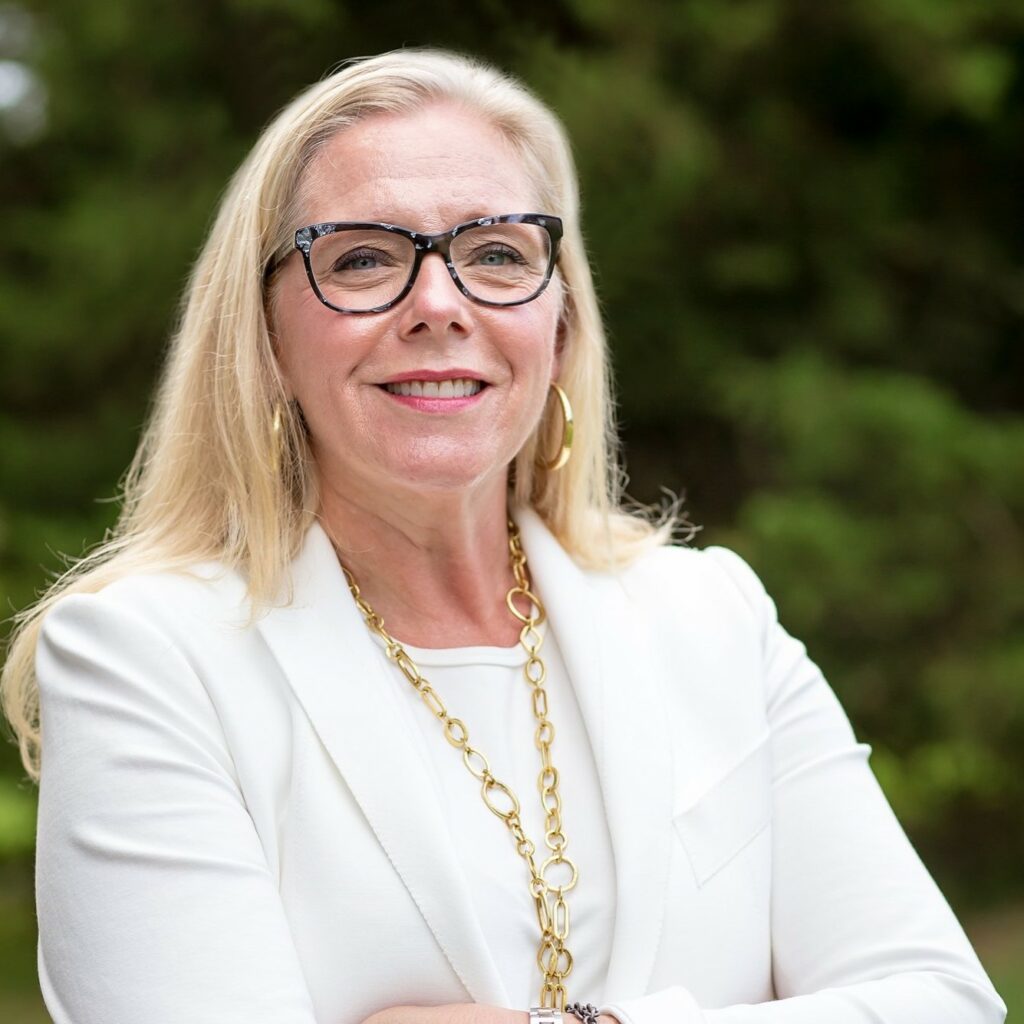
Current Virginia Attorney General Jason Miyares will move directly to the November general election. And with no Republican primary on the ballot, all eyes are on the Democratic contest between former Assistant Attorney General and Delegate Jay Jones and current Commonwealth’s Attorney for Henrico County Shannon Taylor.
C-VILLE: What are your top three priorities if elected?
Jay Jones: My top priority is restoring the attorney general’s office to what it should be—a watchdog for the people, not a weapon for political games. … I’ll take on price gouging, housing discrimination, and corporate abuse, while defending reproductive freedom and civil rights. The job is to serve the people of Virginia.
Shannon Taylor: I believe that [Attorney General Jason Miyares] has been taking on issues from a political lens, and so one of the things we’re going to have to do is to look to see what’s been happening in the office—what are the current pending matters investigations? What are the cases that are being done?. … Reviewing what’s happening in that office, and making sure they’re being done from a legal analysis, a constitutional analysis, and not from a political agenda.
We also are going to have to look to see what’s been going on with these federal lawsuits … Where we can file, where we can go ahead and initiate our own lawsuits for the matters that we are aware that are happening?
Last but not least, is to look at the organization of the office, find out those units that have been either under utilized or not utilized.
What makes you the best choice for this position? How is this distinct from your opponent?
JJ: I’ve served as a legislator, an assistant attorney general, and a lifelong public servant focused on fairness and justice. As assistant attorney general, I worked to protect families from fraud and predatory lending, holding bad actors accountable. … I know how this office works—and how to deliver real results for Virginians. I bring both legal experience and a deep understanding of how to make policy work for people.
ST: Voters need to know that when they are electing an attorney general, they have somebody who is ready to hit the ground running on day one. … I have been practicing law for almost 30 years.
I’ve been a leader in the courtroom. … I was the one who prosecuted the Klansman who drove his truck through the Black Lives Matter march in my county in 2020 …. I was … the special prosecutor to handle one of the white supremacists who marched on the Lawn at the University of Virginia. I’m the one who got on the stage to say that on the date of the Dobbs decision, that I would never prosecute a woman and her doctor for engaging in that very personal reproductive health choice.
I have actually done the work. And voters need to know that that is a distinction between myself and my primary opponent … and Mr. Miyares in November.
How do your priorities overlap with and diverge from your opponent?
JJ: One of the biggest failures of Jason Miyares is his refusal to stand up to the Trump administration and its allies when their policies hurt Virginians. Whether it’s threats to defund our public schools, attacks on reproductive freedom, or rolling back protections for workers and consumers, Miyares looks the other way—or worse, cheers them on. As attorney general, I’ll make sure Virginia fights back when Washington overreaches.
ST: Both Jay Jones and I have been before voters, and we have talked about the things that we’re seeing happening in the office. I would say that it is really a matter of how to implement the policies of that office that are a big distinction.
We are going to bring back and truly utilize that civil rights unit. … We’re going to make sure that environmental regulations that are still on the books but have been ignored since January of 2022 … are being enforced.
One of the things that I know I talk about that is distinct from both these gentlemen [Jones and Miyares] is to expand what is called, currently the Medicaid Fraud Unit, and talking about it more [as] a senior care unit.
What is your first course of action if elected?
JJ: Jason Miyares has stood on the sidelines of critical cases against the Trump administration, for example, the illegal firing of federal workers and illegal levying of tariffs. If elected, I want to evaluate these cases and immediately file documentation in support where there remains opportunity to protect Virginia workers.
ST: I would start having conversations with individuals who are in that office, talking about the management structure, … start talking to employees, start talking to the people who have been there forever, and who have seen things that have worked and that haven’t worked. … That is going to be also incorporating … the lawsuits, reviewing current investigations and pending matters that are being handled right now by the AG’s office, and then how we can start putting into place [civil rights, voter protection, Medicare fraud] units.
If you win the primary, what makes you a strong candidate moving into the November general election?
JJ: This race is about leadership. I’ve taken on tough fights as a legislator, passed laws that protect Virginians, and worked in the AG’s office in Washington, D.C. I know what it takes to lead at this moment. We need an attorney general who won’t hesitate to take on Donald Trump.
ST: I have the proven electability against Republicans. … I’ve proven it four times here in Henrico County. … The things that even Attorney General Miyares talks about as either aspirational or wanting to take credit for, I can say I’ve actually done those prosecutions regarding the fentanyl poisonings, … regarding human trafficking, and I have worked with these agencies when it comes to reviewing the duties and responsibilities of the Virginia Department of Health, the Department of Behavioral, Health, and Developmental Services.
Democratic primary for Charlottesville City Council

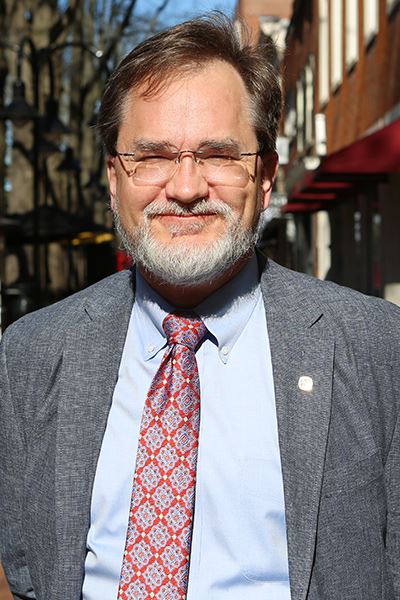

Charlottesville residents will cast their ballot in the city’s experiment with ranked-choice voting this month. Newcomer Jen Fleisher is challenging incumbent Mayor Juandiego Wade and Vice-Mayor Brian Pinkston in the two-seat election.
C-VILLE: What are your top three priorities if elected?
Juandiego Wade: If reelected, I will continue to prioritize affordable housing, public safety, [and] programs for the youth.
Brian Pinkston: I think the first thing that is most urgent and emergent is the situation with the federal government. … The second thing that, for me, I really want to make a priority is addressing the unhoused, particularly downtown. … We’ve had a very difficult time standing up a low-barrier shelter due to both the costs, and the fact that neighborhoods are resistant to having a low-barrier shelter. … The third thing … is we’ve had quite a turnaround at the city in the last three years, and I want to deepen that.
Jen Fleisher: My top priorities are transportation, housing, and education. … I’ll invest in reliable, accessible, clean public transit so that people can get where they need to go easily and on-time. I’ll ensure thoughtful implementation of our new zoning code and community land trust so Charlottesville’s families can afford to live here. I’ll support strong public schools with the funding they need to attract and maintain high-quality staff, teachers, facilities, and infrastructure.
What makes you the best choice for this position? How is this distinct from your opponent(s)?
JW: I have experience as a former school board member for 16 years, transportation planner, mentor, and career counselor. I have served this community at all levels for the past 35 years.
I am the only candidate of color. I am the only candidate that has experience on the Charlottesville school board and experience as a transportation planner where I planned roads, bike lanes, sidewalks, and transit stops and expansion.
BP: Each person, each one of us, brings distinctive aspects. … [I bring] experience, not only 30 years of doing project management work, but also I’ve been on council the last three and a half years. … Even though there has been quite a turnaround in the city, and I’m proud to have been a part of that, the gains are fragile. The work done is not complete.
JF: As a public health leader, I’ve proven that I know how to work with City Hall to deliver real results—from crisis response during COVID to long-term investments in regional transit. Charlottesville residents expect a lot from their city government, and I’m running to provide the kind of transparent, responsive, accountable representation we deserve.
I’ve found our current Council can lose track of priorities and drag out the time it takes to get projects done, and I want to change that. I know how to get things moving—especially when the stakes are high—and I want to bring that experience to City Council. … Our city staff need partners on Council who can set clear priorities, track progress, and deliver results.
How do your priorities overlap with and diverge from your opponent(s)?
JW: My priorities overlap 100 percent with Vice-Mayor Pinkston.
BP: All three of us, we’re all doing this for the right reasons, and that matters massively. … My priorities are, again, going to focus on the three things that I mentioned, with a special focus on really supporting the city manager as he makes decisions.
JF: All the candidates in this race share core values and want to serve Charlottesville residents well. In particular, we all agree that affordable housing and public education must be top priorities. … I have the clearest focus on transportation. … City Council needs to make public transit a reliable option for more riders by hiring more drivers and reducing wait times. And we need to invest in safer streets by calming traffic and improving our crosswalks, sidewalks, and mixed-use paths.
What is the biggest issue faced by your constituents? How would you approach this issue?
JW: I think the biggest issue faced by the residents of Charlottesville is affordable housing.
The passage of the Zoning Ordinance in 2023 will be one approach to address affordable housing. … I will also continue to support the $10 million annual commitment to affordable housing council is committed to. These funds assist in funding other efforts such as rental assistance, Piedmont Housing Alliance, Habitat for Humanity, PHAR, Charlottesville Housing Redevelopment Authority.
BP: The one thread that runs under so many things is the affordability crisis, not just with housing, but just in general. … It’s so hard because people want the city to do more, like to invest in housing or to have programs to help those who were evicted. The only way we can get that kind of money is through our tax revenues, right, and then that imposes an affordability crisis on seniors, for example.
JF: The biggest issue is the cost of living—especially housing. … Charlottesville needs to be a city that people of all incomes, backgrounds, and life stages can afford to call home. To get there, we need to expand subsidized, affordable, and market-rate housing. That means embracing thoughtful density citywide. … Our housing supply also needs a strong safety net for residents facing housing instability, including low-barrier shelters, transitional housing, and permanent supportive housing.
What is your first course of action if (re)elected?
JW: I was part of the change agent that moved the city forward. It has been positive and supported by the public. I will continue those efforts.
BP: Increase how rapidly we move to work with our unhoused residents downtown in particular. … I really feel like we’re on the cusp of doing some significant work with the unhoused. We’ve been talking about it a lot, and it’s time to actually make some headway.
JF: Our newly formed Regional Transit Authority will be my first priority project if elected. We need to bring the University Transit Service into that work to strengthen our regional bus network.
Democratic Primary for Albemarle County Board of Supervisors Jack Jouett District
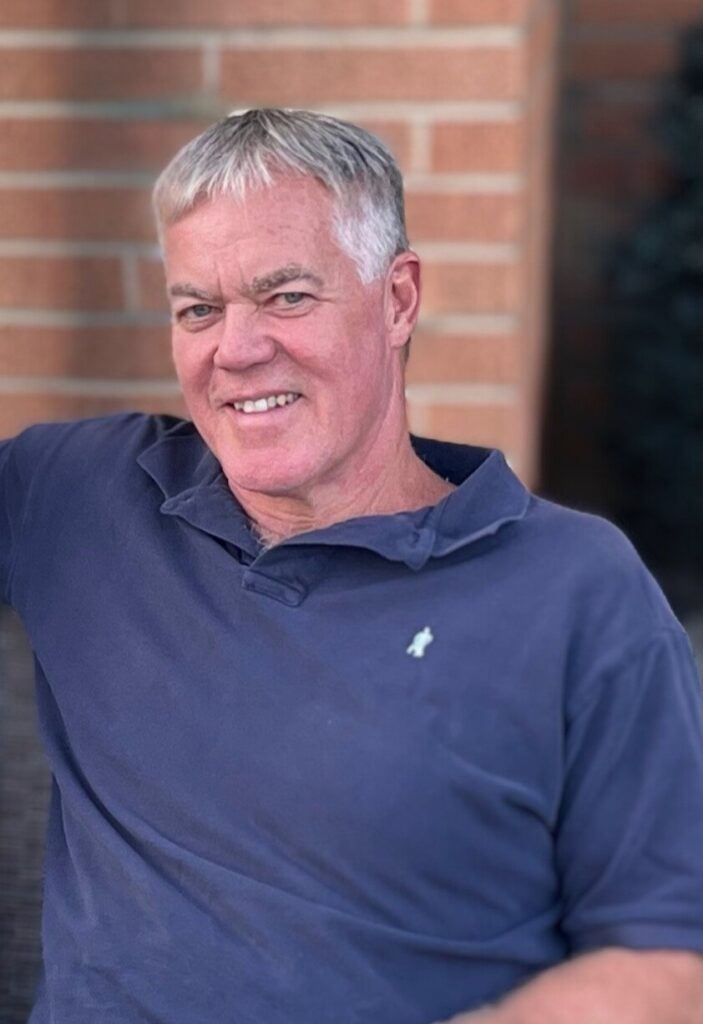

Some county residents have a local primary on the ballot, with David Shreve and Sally Duncan both vying for the Democratic nomination for the Jack Jouett District on the Albemarle County Board of Supervisors. The district spans to the northwest of the Charlottesville city limits, covering the University of Virginia Grounds out to the Beaumont Farm and Arbor Park area.
C-VILLE: What are your top three priorities if elected?
David Shreve: In no particular order … improve the fairness, equity, and adequacy of our county’s fiscal policy; planning for affordable housing initiatives that create permanent affordable housing options, not temporary, exclusively market-based projects … and diversify and enhance [the county’s] transportation system.
Sally Duncan: Housing and economic development, schools, and transit.
Housing and economic growth are connected because in order to reduce the tax burden
on residents, we need to diversify our tax base. We need business growth and workforce development along with a larger supply of homes, and more homes … that people can afford.
We need to continue to support and fund our public schools, … and in the Jack Jouett district specifically, it means continued and active work on redeveloping the Lamb’s Lane campus.
We need to continue to participate in the Regional Transit Authority so that we have a public transit system that is convenient and reliable.
What makes you the best choice for this position? How is this distinct from your opponent?
DS: I’ve devoted my career to learning about, and advocating and organizing for, policies that help people achieve one paramount goal: maximum economic opportunity, combined with a high and sustainable quality of life.
My long experience as a scholar of public policy, as a legislative budget analyst, a National Governors Association post-doctoral fellow, a tax policy reform specialist and consultant, and a nonprofit executive,… [has] taught me how to see the big picture and how to ask the right questions.
SD: My experience as a mother of public school students, as a substitute teacher with ACPS, as a historian, as a teacher, as a working parent, and as a renter will bring a needed perspective to [the board].
My opponent has been around this county for a long time. He has a long history of
supporting policies that directly contradict the needs of the people in the Jack Jouett District. He has written that population reduction needs to happen, and tax credits shouldn’t be allowed for more than two children. Our district is very diverse, culturally and economically. We need a supervisor who does not see people and their needs as a burden.
How do your priorities overlap with and diverge from your opponent?
DS: We have both spoken loudly about the need for affordable housing. My approach is that we must build such housing intentionally, almost always with nonprofit partners and in tandem with multiple levels of government agencies. This approach is not based on the false notion that if we just build more, prices will tumble, or that developers will then be able to carve out the permanently affordable units we need. … I also have a good sense for how growth … affects our ability to provide adequate public services, maintain a fair and equitable tax structure, and protect our environment and critical natural resources, especially clean air and water.
SD: My opponent has written that the reason we have a housing crisis is because there are too many people, and that building more is not the solution. He has written that economic growth is unnecessary. … I believe that if we do not prioritize economic development, workforce development, and increased wages, then things will continue to be difficult, because services are going to continue to be needed. If we want to fund our parks, if we want transit and paratransit, if we want police officers and teachers, we have to pay for them. Stopping population growth and economic growth does not stop prices from rising. … If we do not diversify our tax base and look for revenue from other sources, then taxes will continue to go up. And when we are in a housing crisis where demand is heavier than supply, then we must increase our supply in order to provide homes, and to lower the costs of them across the board.
What is the biggest issue faced by your constituents? How would you approach this issue?
DS: Maintaining a high quality of life, which we’ve come to expect in our community, against the headwinds of spiraling costs and eroding public services.
As suggested above, by focusing sharply on the ways in which our collective decisions about taxes and budgets and the provision of public services affects our standing and direction.
SD: The biggest issue by far is housing. Being able to afford to buy a home, struggling with rising rents, struggling with rising assessments, and living on a fixed income are some of the various ways the housing crisis is impacting people.
This is an issue of supply and demand. … We need to streamline the development process that allows homes to be built more efficiently, we need to use national best practices like the housing trust fund, and having developer incentives that really work … and we need to support business growth … so the business revenue will take some of the tax burden off of property owners.
If you win the primary, what makes you a strong candidate moving into the November general election?
DS: My long service as a Democratic party leader, especially here in the county, and the confidence I have in the party’s most important goals and commitment to service.
SD: I have been going to as many public meetings and board meetings as possible. The summer and fall will be a great opportunity to attend many more, meet more people, and learn even more about the issues affecting the people in our community. When people meet me, they see my energy and passion for this job and the people in our neighborhoods.
Supplied photos
